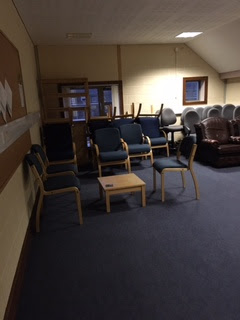MATERIALS SCIENCE
When you visit the Archive Searchroom you will be offered gloves to wear or the option of washing your hands with soapy water. You might be wondering why we don't offer sanitiser. It has been suggested that sanitiser can be harmful to paper and therefore can damage our collections.
A study on the Impact of Hand Sanitizers on Collection Materials has been conducted by the Library of Congress and their findings can be found here.
Extract: "The Preservation and Testing Division (PRTD) screened alcohol and water-based sanitisers to assess their effect on paper based collection materials.
Their findings were that the results from colormetry measurements indicated an increase in yellowness for the coated relative to uncoated papers, where both were exposed to elevated heat and humidity. Alcohol-based hand sanitizers showed the most significant change in color compared to water-based. Differences in colour between the uncoated and coated aged samples were visually detectable in some cases. For the water-based sanitizers, the water-based formulation with the fewest ingredients, showed minimal to no detectable color difference after application. While hand washing is recommended over sanitising, because the former removes dirt and oils where the later does not, if sanitisers continue to be offered at various institutions, water-based formulations are recommended."
Although water-based formulations are recommended in the Library of Congress study, this study by Which magazine on Hand Hygiene, soap and sanitiser gel, adds to the argument that washing your hands with soap is safer than using non-alcoholic or water-based hand sanitisers.
Extract: "It's all about the type of virus we're dealing with. COVID-19 is an enveloped virus. This means that the RNA (nucleic acid - the viral genetic material) is coated in a lipid (fatty) layer. Soap is able to dissolve this lipid layer, causing the virus to fall apart and stopping it from binding to our cells. Alcohol-based hand sanitisers work in a similar way, inactivating the virus by breaking down the lipid layer.
Alcohol-free hand sanitisers commonly contain ingredients such as benzalkonium choride or chlorhexidine digluconate. A recent study in the Journal of Hospital Medicine (March 2020) found these ingredients less effective in deactivating viruses similar to COVID-19 (although the study looked at surfaces not hands)."
MAPS
That's enough science for one day. Here's part of a nice map of Kirkwall to view:
 |
| Kirkwall and Grain, Dundas Estate. William Aberdeen dated 1766 Reference: D8/E/19 |







